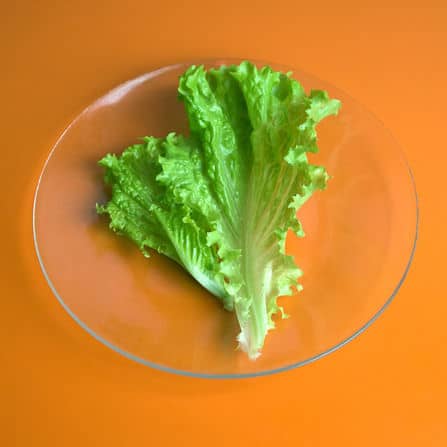

The summer season has officially started and Americans whom are facing beach season with the extra pounds accumulated over a long winter are entering panic mode. Many are looking for that quick-fix, the “drop 20 pounds in a month” solution that will get them through their vacation without having to hide under an oversized beach pancho. Some are embarking on the downward portion of their annual bodyweight seesaw. Still others are seeking to finally get their weight under control before it is too late. They all have something in common though. The most likely result of their diet will be that, when they step on the scale next year at this time, they will be even heavier. Whether it happens in the near term or over time, the diet they start this year is almost destined to fail.
The following list details some of the most common reasons why most weight loss programs fail:
- Not Eating Enough – It sounds counterintuitive, but in order to lose weight you have to eat. Many people fall into the trap of making drastic reductions in the amount of calories they take in per day. This will work at first but as the body reacts to the lack of fuel it will begin to dial down the metabolic rate in order to ration out the available fuel to the organs and systems necessary for sustaining life.
- Not Drinking Enough Water – All of the body’s metabolic processes require adequate hydration in order to function properly, including weight loss. Most experts recommend 6-8 glasses of water per day for the average individual. I subscribe to the theory that for the normal, healthy person not undergoing unusual stressors like illness, vigorous exercise and, yes, dieting, a better rule of thumb would be to drink at least half your body weight in ounces per day. If you are exercising or dieting, etc., add 10 percent more. For example: I am 180 pounds and I exercise vigorously each day. I should drink 99 to 108 ounces of water per day. Do I always do that? No, but I shoot for it and it makes a difference.
- Eating Low-Fat/Non-Fat Foods – In order for fat-free foods to be palatable the manufacturers must add large amounts of sweeteners like high fructose corn syrup and other sugars. These foods do not satisfy hunger and stimulate the craving for more. This can lead to binge-eating under the misapprehension that if it’s non-fat you won’t gain weight. Spoiler Alert: Fat Does Not Make You Fat – Sugar Does.
- Fatty Liver – Chances are if you are significantly overweight, your liver has some level of fatty congestion which inhibits the fat-burning process. For a weight loss program to really work, the liver has to be functioning at its best.
- Wanting to Lose Weight – This is not a good reason to start dieting. The truth is that most people are perfectly happy being overweight or they wouldn’t be. I know that sounds harsh but it is true. If you want your weight loss to be successful (permanent), your goals must be clearly defined and quality of life oriented. Decide on the things that you cannot be, do or have because you are overweight. Make having those things as a regular part of your life the goal and your chances of success will improve significantly.
- Believing That Dieting Alone Will Work – Bad news for those who hate exercising. Diets work better in the short term if coupled with exercise, and the change is more likely to last if you exercise regularly. Exercise increases the basal metabolic rate of the body and helps preserve muscle mass, which is critical to the long-term success of any weight management program.
- Deprivation – Sooner or later, during the course of a weight loss program, the dieter will be confronted with a situation (usually social) where they must choose between staying on the plan and suffering the pain of watching everyone else indulge, or giving in to the moment and suffering the guilt and recrimination of failure later. Both choices can lead you to prematurely exit your program and return to normal eating patterns before lasting change can occur.
And the # 1 cause of dieting failures is:
- Dieting. That’s right. Diets don’t work. They are finite and they have no exit strategy. Diets are like a Nicolas Cage movie – they have a beginning, middle and an end; they are usually annoying, often horrible, and you can’t wait for them to be over, so you can do something fun. This is not how lasting change is achieved.
These are just of few of the pitfalls of dieting. There are many, many more but, in truth, most all are solved with one significant change. Any physique transformation program should be a balanced long-term regimen that includes exercise, and the conversion to a nutritional lifestyle based predominantly on eating fresh, whole foods prepared at home. The operative term is “lifestyle.”
That being said, here are a few “Do’s” that will help any program work better:
- Set valid goals – in order to achieve lasting change, a person must define the “why” and create a list of life-improvement-oriented goals based on that definition.
- Exercise – 3-6 hours per week that use strength-training as the foundation. More muscle equals a higher metabolic rate leading to accelerated fat-burning.
- Drink plenty of water.
- Eat enough – reduce or eliminate fast and processed foods, and eat fresh, whole, home-prepared foods.
- Avoid white, starchy foods – breads, pasta, white rice, etc. Eat brown foods.
- Eat more protein and fat (from oils, nuts and seeds) and less carbs. Get your carbohydrates from vegetables and fruits.
- Clean out your liver – use a well-designed liver detox/support complex to up-regulate your liver’s fat-burning ability.
- Maximize your body’s energy conversion capabilities by using a well-designed clinical multi-vitamin.
- Allow yourself “free days” when you can eat some of the treats you have been missing. Plan for these to coincide with big social events. Enjoy your reward then get back on program the next day by starting the day with a good workout followed by a protein-rich meal.
The unavoidable truth about dieting is that it never works the way the guru’s and infomercials promise. The change they promise won’t last because you can’t live your whole life doing the things you must do to achieve that change. Remember, it took years, maybe decades to get the body you don’t want, it will take more than 3 months to restore and keep the body you desire. It will take a lifestyle and a lifetime. But take heart – a fit, toned healthy body, that looks great and having the foods you love are not mutually exclusive. Live right and you truly can have your cake and eat it too.




